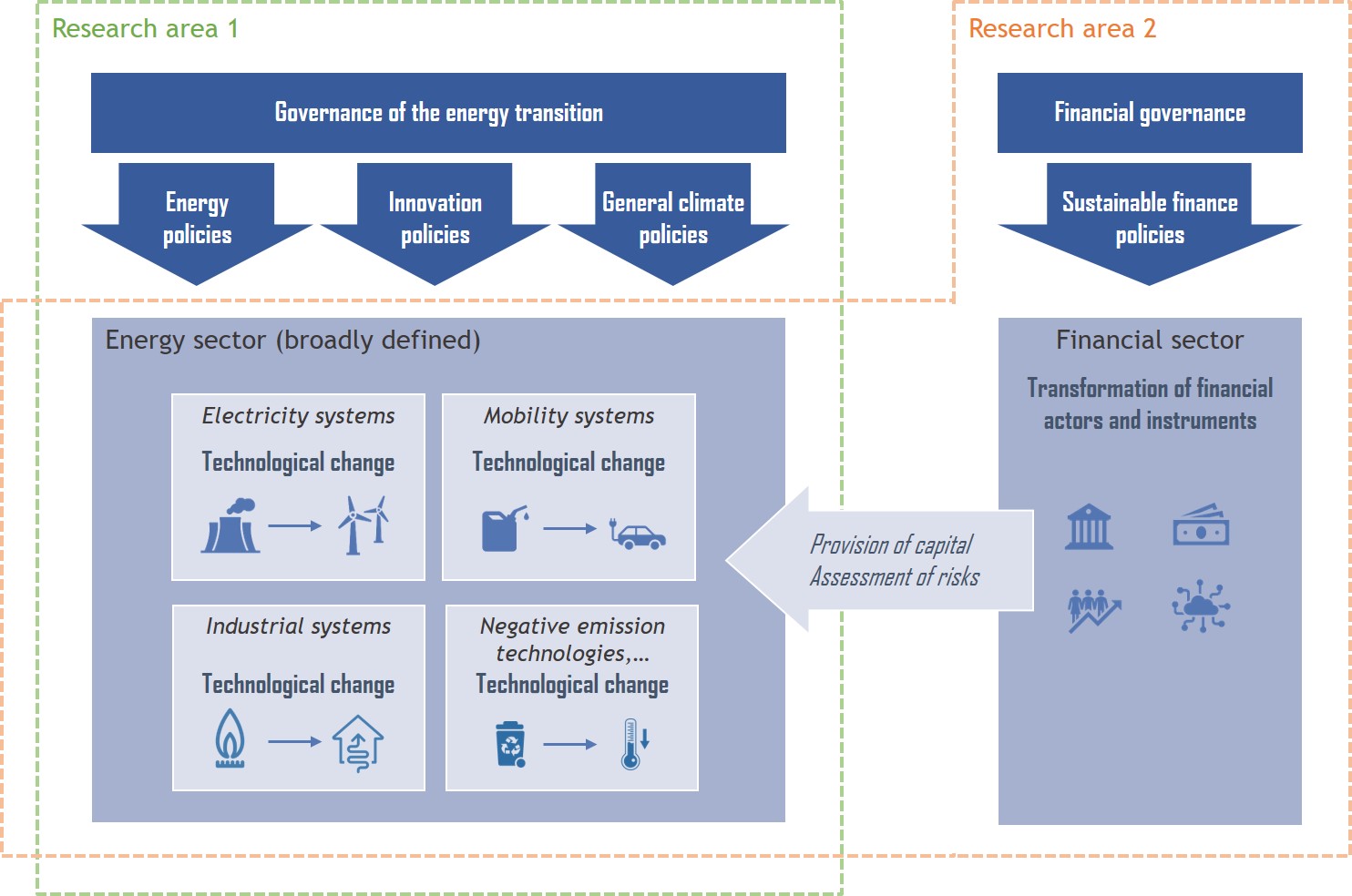Research
The overarching motivating question of our group is how to accelerate technological change to mitigate and adapt to climate change. To this end, our research builds on three premises: (1) The decarbonization of economies requires rapid and massive investments in new low-carbon technologies, (2) financial actors and financing conditions (e.g. the availability and cost of capital) play an important role for the capital allocation in polluting sectors, and (3) public policy interventions are required to accelerate technological change in these sectors. Against this backdrop, high-level research questions are
- Which low-carbon technologies and system configurations are efficient solutions today and in the future?
- What are the financing needs of these new technologies, and what is the role of financial actors and instruments in the transition to new technologies?
- What are effective and efficient policy interventions from a societal point of view?
Our research methods comprise (bottom-up) techno-economic models on the technology and energy system level, with a particular focus on investment and operating cost dynamics for new technologies, intertemporal aspects, and system-level interactions. In addition, we employ a range of empirical methods, including applied econometrics, machine learning/data science methods, and expert elicitations. We also combine empirical research and techno-economic modelling that uses the empirical insights for calibration in mixed-method research designs.
The scope of our two main research areas is summarized in the figure below; also see selection of third-party research projects.
